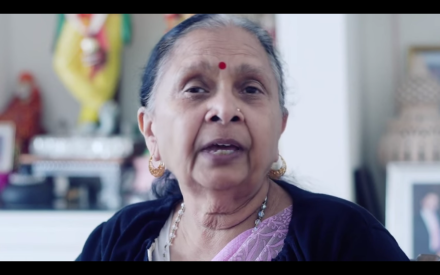
“A person like me, I am never scared of anybody”, Jayaben Desai told her manager before she downed her tools, beginning one of the seminal industrial disputes of the 1970s.
In the blistering summer of 1976, Desai led a 100 strong protest at the Grunwick film processing plant in northwest London. Tired of low pay and poor working conditions, Desai – who hailed from Gujarat, India – and her fellow workers – who were mostly from abroad – had enough. A year later they’d inspired 20,000 trade unionists, many of whom were white, to march on the factory in solidarity. They eventually conceded defeat but Desai’s achievements are not to be sneered at: she united workers previously polarised along race lines. Many shared fond memories of her indefatigable spirit when she died in 2010; realising people like Desai keep the international Labour movement alive.
Yet Desai’s story is one of few about minority ethnic women that the left properly remembers. Perhaps that’s because there is a shortage of stories where Black, Asian and Minority Ethnic (BAME) take centre stage, but even if that is the case, we should ask why.
Women of colour, their contributions and the particular forms of discrimination they face are all too often sidelined by the left and by mainstream politics more broadly. Just two weeks before we all came together on International Women’s Day to embrace feminism, Labour MP Dawn Butler laid bare the ugly realities women of colour face on a daily basis. After stepping into the members’ only lift in Parliament, one of her fellow MPs turned to curtly reprimand her: “This lift really isn’t for cleaners”. The assumption: Butler as a black woman must be a cleaner. No way could she be an MP. Diane Abbott, the first black woman MP, has spoken of similar experiences.
When the malice of racism and sexism is exposed in this way, the magnitude of the response is often great. Social media exploded in outrage and disbelief. But the system that produced this discrimination is left unchecked. Women of colour are more likely to be poorer and less healthy than their white counterparts. That’s not just an accident or an unfortunate outcome of sexism; it’s bound up with the racism. Racism and sexism: that’s what minority ethnic women in Britain have to deal with every day.
When it’s recognised, this double prejudice often paves the way for a saviour complex to kick in. The problems these women face are reduced to simple stories where wider society is somehow blameless: women of colour need to be saved from “oppressive” cultures or “barbaric” men. This is a ludicrous leap to make when we all know men of any colour are capable of abusing women; ‘race’ and ethnicity have nothing to do with it. Institutional sexism and racism don’t get a mentioned.
We’re all entitled to our own version of feminism. There’s particular one that calls for equal pay, equal representation, and more broadly the right to one day move through life without sexism shaping the path. But too often it risks infantilising women of colour around the world by speaking for them and too often it ignores the racism British women of colour experience. At times, calls for equality seem to implicitly mean between white men and white women.
Jayaben Desai’s story is a powerful reminder that women of colour are not just passive victims, as politicians like David Cameron would have us believe, or abstract voters groups to be tapped into when an election rolls around. The thirteen minority ethnic women who are Labour MPs, countless councillors, Labour peers, and huge numbers of women of colour in the labour movement and the broader left wing movement who help to keep it alive. Yet they are rarely given attention for a substantial amount of time. Their experiences and views should be essential to the left-wing feminist movement because in the words of Flavia Dzodan: “My feminism will be intersectional or it will be bullshit.”




More from LabourList
‘Factionalism at the top is weakening Labour – and handing a gift to Reform’
‘Europe must stand strong on its own as US security guarantees grow conditional’
‘Tackling poverty should be the legacy of Keir Starmer’s government’